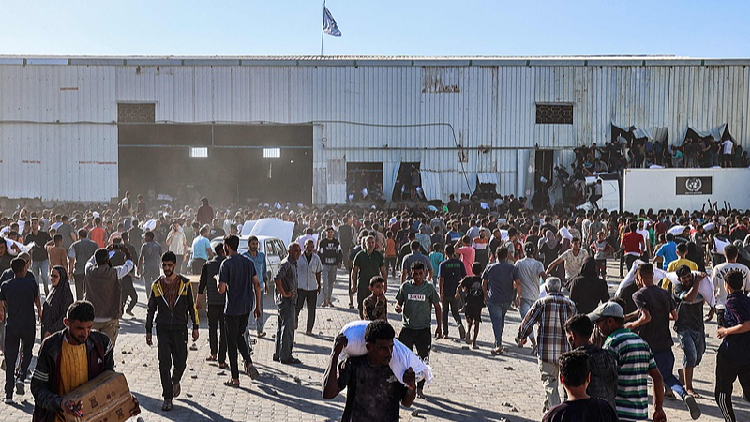Hamas Announces Agreement with U.S. on Gaza Ceasefire Framework to Promote Peace
Hamas announces agreement with U.S. envoy on Gaza ceasefire framework, signaling potential for renewed calm in the region.

The ongoing crisis in the Gaza Strip saw a potential breakthrough on Wednesday, as Hamas announced it had agreed to a general framework for a ceasefire following talks with U.S. Special Envoy to the Middle East Steve Witkoff. According to an official statement from Hamas, the proposed framework addresses several key issues that have been at the heart of negotiations and could mark a significant step toward ending months of bloodshed.
Under the terms outlined by Hamas, the ceasefire plan would reportedly include the release of 10 Israeli hostages along with the remains of other captives, in exchange for the liberation of a specified number of Palestinian prisoners. These arrangements, according to Hamas, would be guaranteed by international mediators. The group emphasized its commitment to halting what it describes as the "brutal war" on the Gaza Strip and said it is awaiting a final response to the outlined deal.
The broader framework outlined by Hamas would reportedly ensure a permanent ceasefire, a full withdrawal of Israeli forces from Gaza, the resumption of humanitarian aid flow, and the immediate formation of a professional committee to administer the Strip once the agreement is finalized. Despite these promising declarations, conflicting reports emerged concerning the status of the agreement. While a Hamas official indicated a tentative acceptance of Witkoff's proposal, the envoy publicly denied such an accord had been reached.
Meanwhile, the Israeli government has yet to officially comment on the proposal. Media reports from within Israel suggest that the government remains opposed to the framework, reiterating longstanding conditions for ending military operations in Gaza. According to regional analysts, Prime Minister Benjamin Netanyahu has insisted that any cessation of hostilities must involve Hamas relinquishing governance in Gaza, full disarmament of armed groups, and the exile of Hamas leadership from the enclave.
Abdel Mohdy Motawe, director of the Cairo-based Middle East Forum for Strategic Studies and National Security, noted that there exists a broad consensus within the Israeli political establishment and its U.S. allies around these demands. "It is unlikely for Netanyahu to stop the war unless the conditions are met, though he might accept a partial deal," explained Motawe.
Others point to a lack of robust international pressure as a factor in the ongoing conflict. Mokhtar Ghobashy, an Egyptian security expert, highlighted that insufficient diplomatic intervention has allowed Israel to continue operations in Gaza unabated. He warned that Israel may be exploiting the regional context to implement policies that result in further displacement of Palestinians.
On the ground, ordinary Palestinians continue to bear the brunt of the conflict. After more than eleven weeks of strict Israeli blockade, two food distribution centers operated by private U.S. companies began functioning in southern Gaza, signaling a limited and fragile resumption of vital humanitarian assistance. Desperate conditions were evident on Tuesday in Rafah, where thousands crowded into an aid distribution center staffed by the Gaza Humanitarian Foundation. The overwhelming demand quickly led to chaos, with residents overrunning the facility in search of food, and dismantling sections of the fencing in their quest for survival.
Jens Laerke, spokesperson for the UN Office for the Coordination of Humanitarian Affairs, stressed from Geneva that the UN is not involved in the operation of these private aid initiatives and described them as inadequate to address the true scale of need. "It is a distraction from what is actually needed," he said, underscoring that the real solution lies in reopening all crossing points into Gaza to enable sustained and unhindered humanitarian relief.
As the humanitarian situation grows increasingly dire and diplomatic efforts remain fraught with uncertainty, the fate of the ceasefire talks—and the future of Gaza’s embattled population—hangs in the balance.




